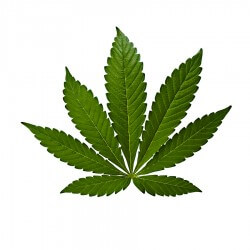 In order to understand whether an individual can suffer from withdrawal from marijuana, it is important to understand what withdrawal actually means. Put simply, withdrawal occurs when someone who has developed a tolerance to a drug or other substance, such as alcohol, experiences physical, emotional or psychological symptoms that would be relieved if they used their drug of choice.
In order to understand whether an individual can suffer from withdrawal from marijuana, it is important to understand what withdrawal actually means. Put simply, withdrawal occurs when someone who has developed a tolerance to a drug or other substance, such as alcohol, experiences physical, emotional or psychological symptoms that would be relieved if they used their drug of choice.
Some drugs will have more severe withdrawal symptoms than others, and factors like the amount of drug taken regularly and the frequency of abuse of those drugs can come into play. For example, regularly smoking tobacco cigarettes can cause a person to go through withdrawal. Symptoms may include cravings, anxiety, headaches, irritability and even depression, according to the National Institutes of Health. Heroin, on the other hand, is an opiate drug that has far more severe withdrawal symptoms, including pain, nausea, vomiting and cold sweats. The level of difficulty surrounding withdrawal symptoms is impossible to measure because each person is unique. Their use patterns are unique, as is their ability to handle stressful situations.
Marijuana Withdrawal Symptoms Can Affect Your Daily Life
Like nicotine cigarettes, marijuana withdrawal can include intense cravings for the drug. This is probably the most profound of the recognizable symptoms of withdrawal. According to ABC News, many people believe that marijuana is not addictive. From this point of view, it is easy to see how a person withdrawing from marijuana use might attribute many of the withdrawal symptoms to something else.
Marijuana withdrawal symptoms include:
- Irritability
- Insomnia
- Depression
- Loss of appetite
- Aches and pains
A person who has become irritable after no longer using marijuana for a few days may consider this trait a result of how “mellow” the drug used to make them feel. Rather than seeing this as a sign of physical withdrawal, they might see it as a reason that marijuana is “good” for them.
Self-Medicating With Marijuana Can Mask Serious Issues
One of the withdrawal symptoms of heavy marijuana use, depression, deserves a closer look because of the unknown links between the two. Some experts suggest that marijuana use does not cause depression, according to the Mayo Clinic, but that individuals who choose to begin using marijuana may already be suffering from depression or related conditions. Others, like those at the University of Washington, espouse that the link is more of a cause-and-effect scenario by indicating that smoking marijuana can make depression worsen.
Anytime an individual suffers from addiction and another disorder at the same time, they are said to have co-occurring disorders. It doesn’t have to be depression. Anxiety is another common condition that has been found prevalent in those who abuse drugs, for instance. Individuals may use drugs because they make them feel good or better than they feel without the drugs. This type of self-medicating can be dangerous because of the physical changes that occur in the human brain due to drug abuse, as well as the long-term physical effects. It is better to treat the mental, emotional and psychological problems directly with the help of professionals.
Once addiction has taken hold, however, it is necessary to treat both conditions at the same time. If an individual is using marijuana to mask depression, and they stop using the drug, their original symptoms are still there. They may have a serious determination and commitment to sobriety; however, the knowledge that using marijuana is a quick, temporary fix to their depression can derail their efforts. Eventually, they may relapse because they don’t know what’s wrong with them. The National Institute on Drug Abuse has outlined several aspects of the most effective treatment practices. One of these is the concept that treating the entirety of the individual’s conditions, physical and non-physical, is necessary to give them the tools they need for success.
Get Help for Marijuana Addiction
 At Axis, we create tailored, specific plans of action for each person who comes to us for help. We can help you overcome the symptoms of marijuana withdrawal with emotional and spiritual support from a community that understands what you’re going through. We can provide a detailed assessment of your unique needs and circumstances to develop a treatment plan that works for you. Finally, we can provide you with all of the tools you need to regain your footing in your life outside of treatment.
At Axis, we create tailored, specific plans of action for each person who comes to us for help. We can help you overcome the symptoms of marijuana withdrawal with emotional and spiritual support from a community that understands what you’re going through. We can provide a detailed assessment of your unique needs and circumstances to develop a treatment plan that works for you. Finally, we can provide you with all of the tools you need to regain your footing in your life outside of treatment.
If someone you know has tried to stop using marijuana but found they are unable to tolerate withdrawal symptoms they may not even realize they have, call us here at Axis today.


